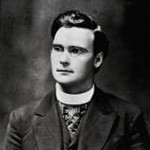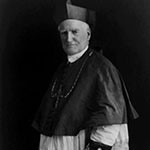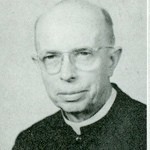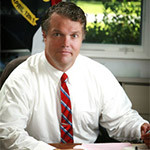 Please join the political science and global affairs department on Thursday, October 24, at 5 p.m. in the Brian Doyle Lecture Hall (Dundon-Berchtold 004) for the inaugural Helen Schwarten Foundations of Freedom Lecture. The speaker is Michael Munger of Duke University, who will discuss his new book, Is Capitalism Sustainable? (American Institute for Economic Research, 2019).
Please join the political science and global affairs department on Thursday, October 24, at 5 p.m. in the Brian Doyle Lecture Hall (Dundon-Berchtold 004) for the inaugural Helen Schwarten Foundations of Freedom Lecture. The speaker is Michael Munger of Duke University, who will discuss his new book, Is Capitalism Sustainable? (American Institute for Economic Research, 2019).
Munger is professor of political science, economics, and public policy at Duke University, and directs its Philosophy, Politics, and Economics Program. He has worked as an economist at the Federal Trade Commission and served as president of the Public Choice Society. He has taught at Dartmouth College, University of Texas-Austin, and University of North Carolina-Chapel Hill. His other books include Tomorrow 3.0: Transaction Costs and the Sharing Economy (Cambridge 2018) and Choosing in Groups with Kevin M. Munger (Cambridge 2015). His research interests include regulation, political institutions, and political economy.
For more information contact Bill Curtis, political science, at curtisw@up.edu.
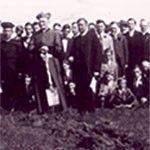 June 8, 1911 saw the groundbreaking for Christie Hall, at a ceremony attended by Portland archbishop Alexander Christie, the building’s namesake, who turned the first spadeful of earth himself.
June 8, 1911 saw the groundbreaking for Christie Hall, at a ceremony attended by Portland archbishop Alexander Christie, the building’s namesake, who turned the first spadeful of earth himself.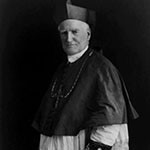 The University’s annual Founders’ Day celebration will take place on Tuesday, April 12. Student presentations will be held in place of regularly scheduled classes, and all students and faculty are encouraged take part in the day’s events, featuring senior presentations, undergraduate research, panel discussions, recitals, and more. Classes scheduled to begin after 4 p.m. will be held as usual.
The University’s annual Founders’ Day celebration will take place on Tuesday, April 12. Student presentations will be held in place of regularly scheduled classes, and all students and faculty are encouraged take part in the day’s events, featuring senior presentations, undergraduate research, panel discussions, recitals, and more. Classes scheduled to begin after 4 p.m. will be held as usual.
